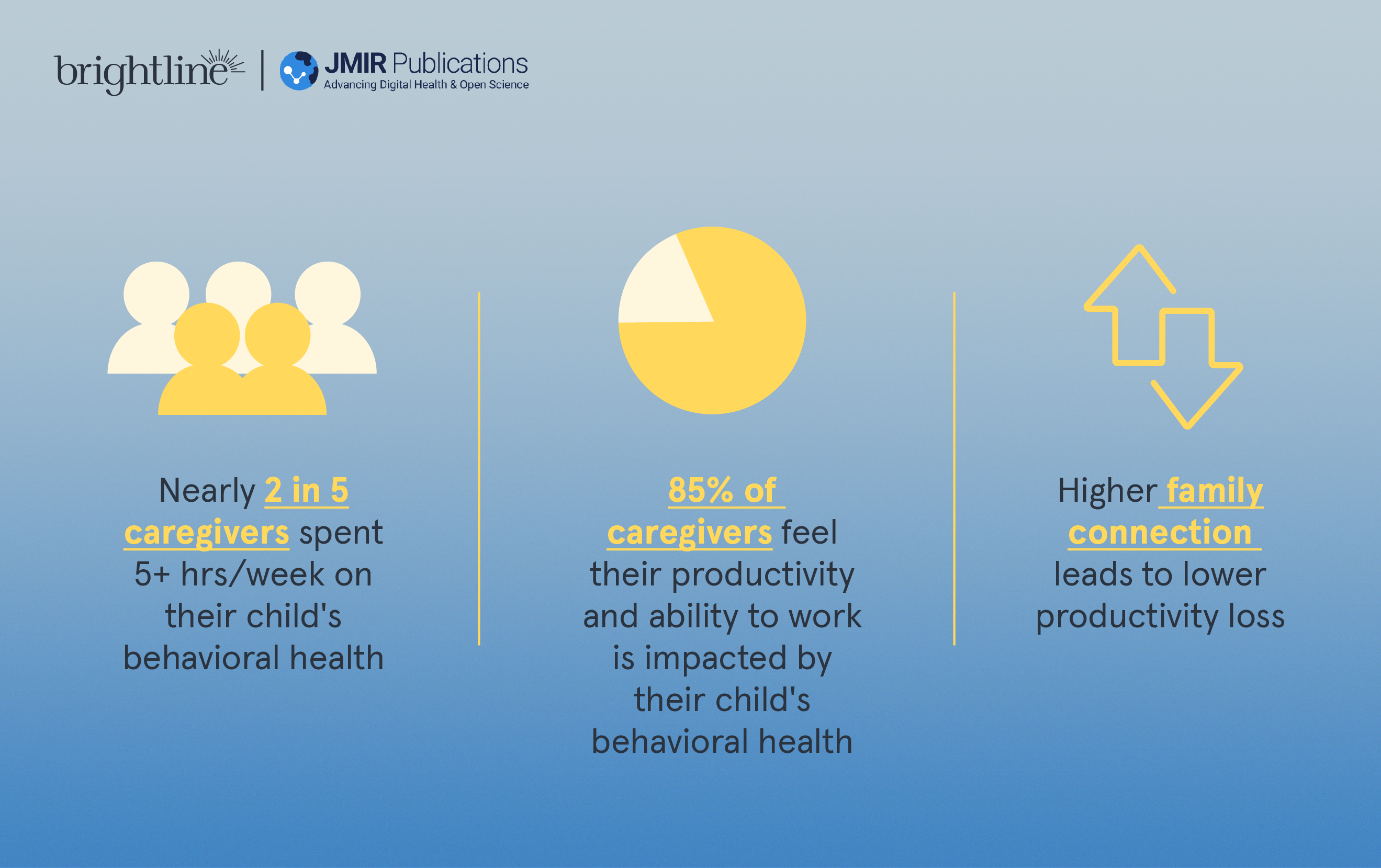Brightline study: How your kid's stress shows up at your work

By Brightline team, Aug 18, 2022
As a persistent pandemic and increased social tensions pile more stress onto families, working caregivers are in desperate need of more support. Those with children experiencing behavioral health concerns are especially feeling the strain at home, at work, and everywhere in between.
Most aren’t given the space, time, and resources at their jobs to balance their work and caregiving, especially amid a growing need for mental health care among young people. As a result, many have gone so far as to quit – or plan to quit – their jobs to better care for their child's needs. And without a support system from their employers to help them, caregivers cannot balance the needs of their families and their work, forcing them to focus on one more than the other. Struggling to focus on work due to childcare needs is something many of us have seen or experienced first-hand. But now with this study, we have a quantifiable way to see this impact, especially during the pandemic, to finally understand this issue and address it head-on.
To better understand the challenges working caregivers face in managing their children’s behavioral health and their work, Brightline’s Chief Psychiatric Officer Dr. David Grodberg and a team of researchers facilitated a study exploring the impact of pediatric stress on working caregivers’ productivity, published today in the Journal of Medical Internet Research (JMIR).
Dr. Grodberg and his team found that:

As the first peer-reviewed study of its kind, the findings underscore the “silent crisis” among working caregivers and demonstrate to employers the urgency to evaluate the gaps in their support to provide much-needed assistance to working parents.
Dr. Grodberg and his team’s study offers findings that can help activate positive change in real-time for families, which is unique. “It’s rare for us to be able to both assess and work towards addressing an issue prompted by a global crisis or emergency,” said Dr. Grodberg. “A critical takeaway from this research is the sheer reach of this issue, and therefore the importance of delivering real care and support for parents, caregivers, children, and families at scale. Employers can provide specific tools calibrated to measure pandemic-related stress to employees and swiftly connect them with the help their children need.”
Additionally, the study findings champion the power of family connection and employing family-focused care models related to children’s behavioral health. At Brightline, we use what’s called a “dyadic” care model, or a family-focused care model, which means involving parents and caregivers in their children's care. This model has shown to be three times more likely to be effective. During the study, Dr. Grodberg and his team found that higher family connection, as defined above, is linked to better productivity among working caregivers.
Employers must prepare for a surge in demand for pediatric behavioral health care. Without immediate action, caregivers will continue to suffer from increased stress and many children will go without much-needed support, as employers experience higher rates of absenteeism, liability and turnover. Many employers don’t yet understand the severity and scope of this issue. Our hope is that this study and future research can help employers understand the experiences of working caregivers and how to better support them.
Read our press release and the full study to learn more about working caregivers and pediatric stress, and how employers can champion easier, better access for the support they need.